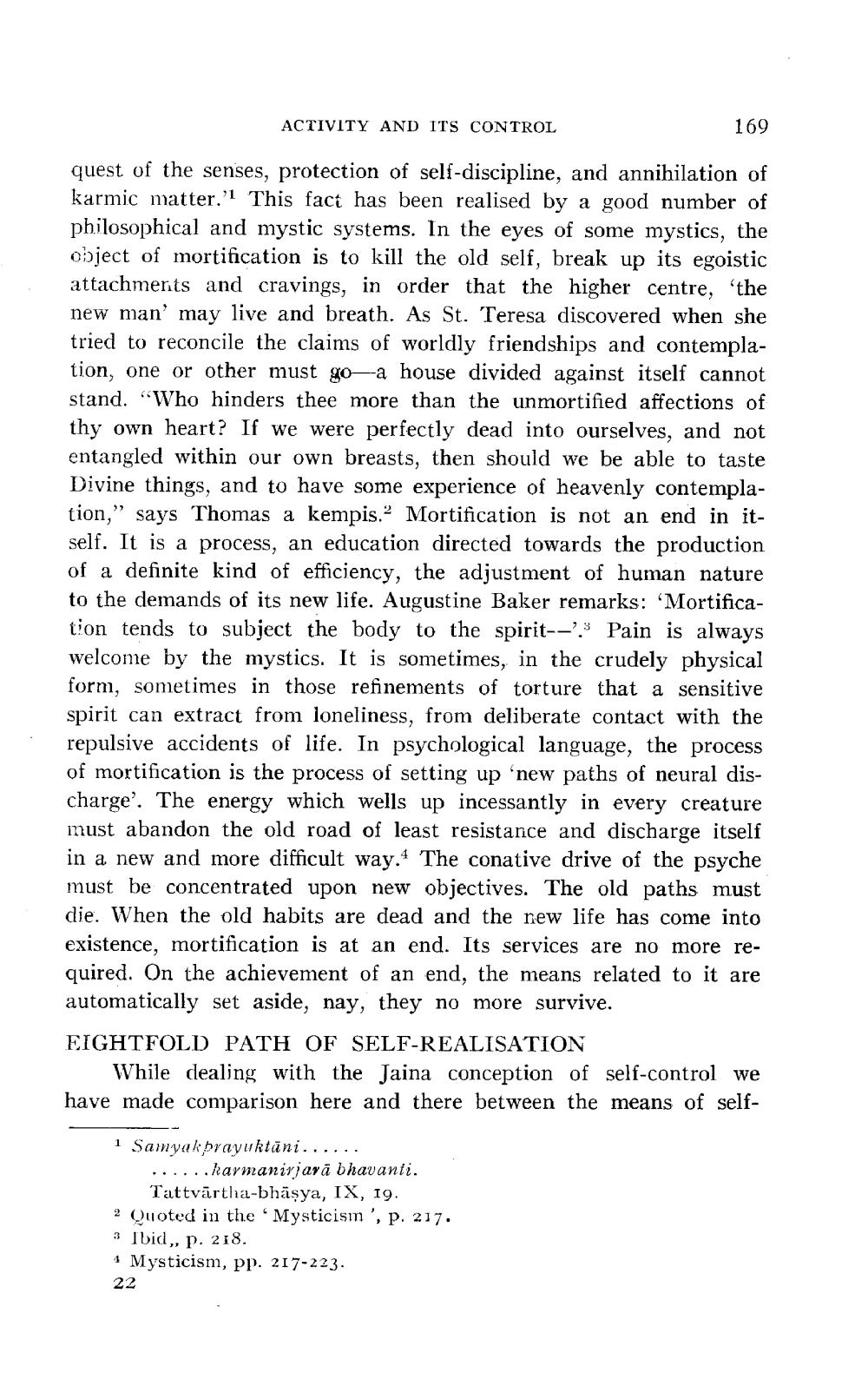________________
169
quest of the senses, protection of self-discipline, and annihilation of karmic matter." This fact has been realised by a good number of philosophical and mystic systems. In the eyes of some mystics, the object of mortification is to kill the old self, break up its egoistic attachments and cravings, in order that the higher centre, 'the new man' may live and breath. As St. Teresa discovered when she tried to reconcile the claims of worldly friendships and contemplation, one or other must go a house divided against itself cannot stand. "Who hinders thee more than the unmortified affections of thy own heart? If we were perfectly dead into ourselves, and not entangled within our own breasts, then should we be able to taste Divine things, and to have some experience of heavenly contemplation," says Thomas a kempis." Mortification is not an end in itself. It is a process, an education directed towards the production of a definite kind of efficiency, the adjustment of human nature to the demands of its new life. Augustine Baker remarks: 'Mortification tends to subject the body to the spirit--. Pain is always welcome by the mystics. It is sometimes, in the crudely physical form, sometimes in those refinements of torture that a sensitive spirit can extract from loneliness, from deliberate contact with the repulsive accidents of life. In psychological language, the process of mortification is the process of setting up 'new paths of neural discharge'. The energy which wells up incessantly in every creature must abandon the old road of least resistance and discharge itself in a new and more difficult way. The conative drive of the psyche must be concentrated upon new objectives. The old paths must die. When the old habits are dead and the new life has come into existence, mortification is at an end. Its services are no more required. On the achievement of an end, the means related to it are automatically set aside, nay, they no more survive.
ACTIVITY AND ITS CONTROL
EIGHTFOLD PATH OF SELF-REALISATION
While dealing with the Jaina conception of self-control we have made comparison here and there between the means of self
1
Samyakprayuktāni.......
...karmanirjara bhavanti.
Tattvärtha-bhāṣya, IX, 19.
2 Quoted in the Mysticism', p. 217.
3 Ibid,, p. 218.
4 Mysticism, pp. 217-223.
22




